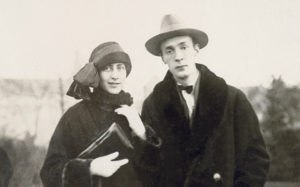
Why Did Véra Nabokov Destroy All Her Letters to Vladimir?

Throughout their long and mostly blissful union, the Nabokovs wrote extensively to each other, and a massive volume of correspondence was recently assembled, edited and translated. On the page, Nabokov is witty, tender, and uxorious in the extreme: My dear life, begins one missive from 1926; I love you endlessly and I am waiting for you. Send me a telegram. My love my love, my love. My life, ends another from that same year. In 1930, he was moved to pen this plea: Yes, I love you, I love you endlessly. Please write to me, otherwise I’ll have another fit of the spleen and stop writing. What was Vera’s response to all these endearments? We’ll never know because she destroyed all of her letters.
The volume then, all 794 pages including index and notes, is unavoidably lopsided: we experience Véra only through Nabokov’s words; she never speaks directly to us. Why? We’ll never know for sure, but I would hazard a guess that Véra had reason to cultivate her privacy, like a cloak or shawl she drew tightly around herself. Even in her first meeting with Vladimir, she chose to remain unseen. Was this a precursor of what was to come? Or a response to what had already happened?
As a Jewish woman forced twice into exile—first from Russia to Berlin, and then, in 1937, Berlin to the United States, perhaps her need to hide became reflexive because it was essential to her survival. Seen in this light, the radical act of destroying those letters could have been the last manifestation of a well-honed habit, one born long ago out of an instinctual need for self-preservation. The enigmatic Véra Slonim Nabokov will never tell us, and she is destined to remain elusive, glimpsed only in the reflection of her adoring husband’s eyes.



